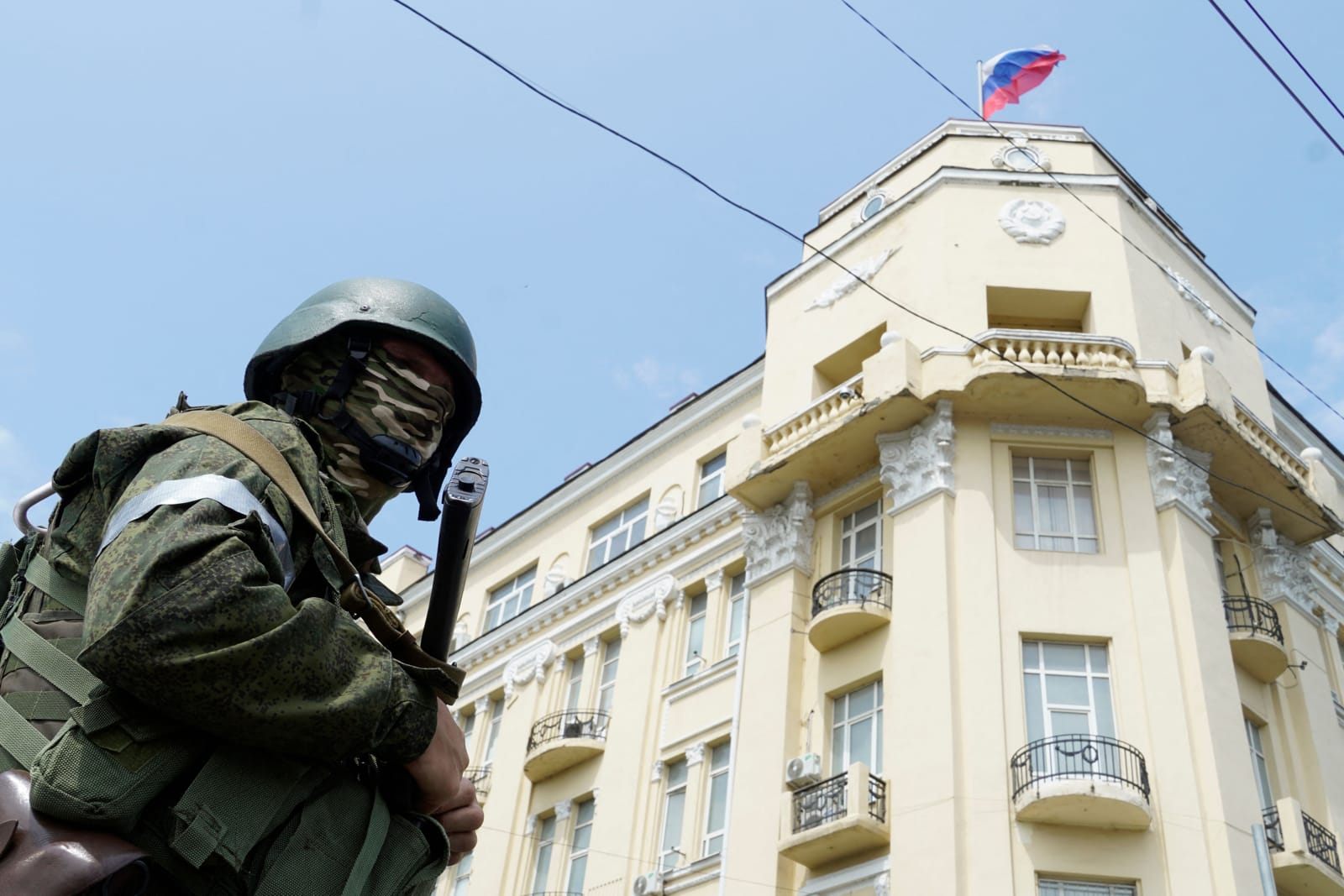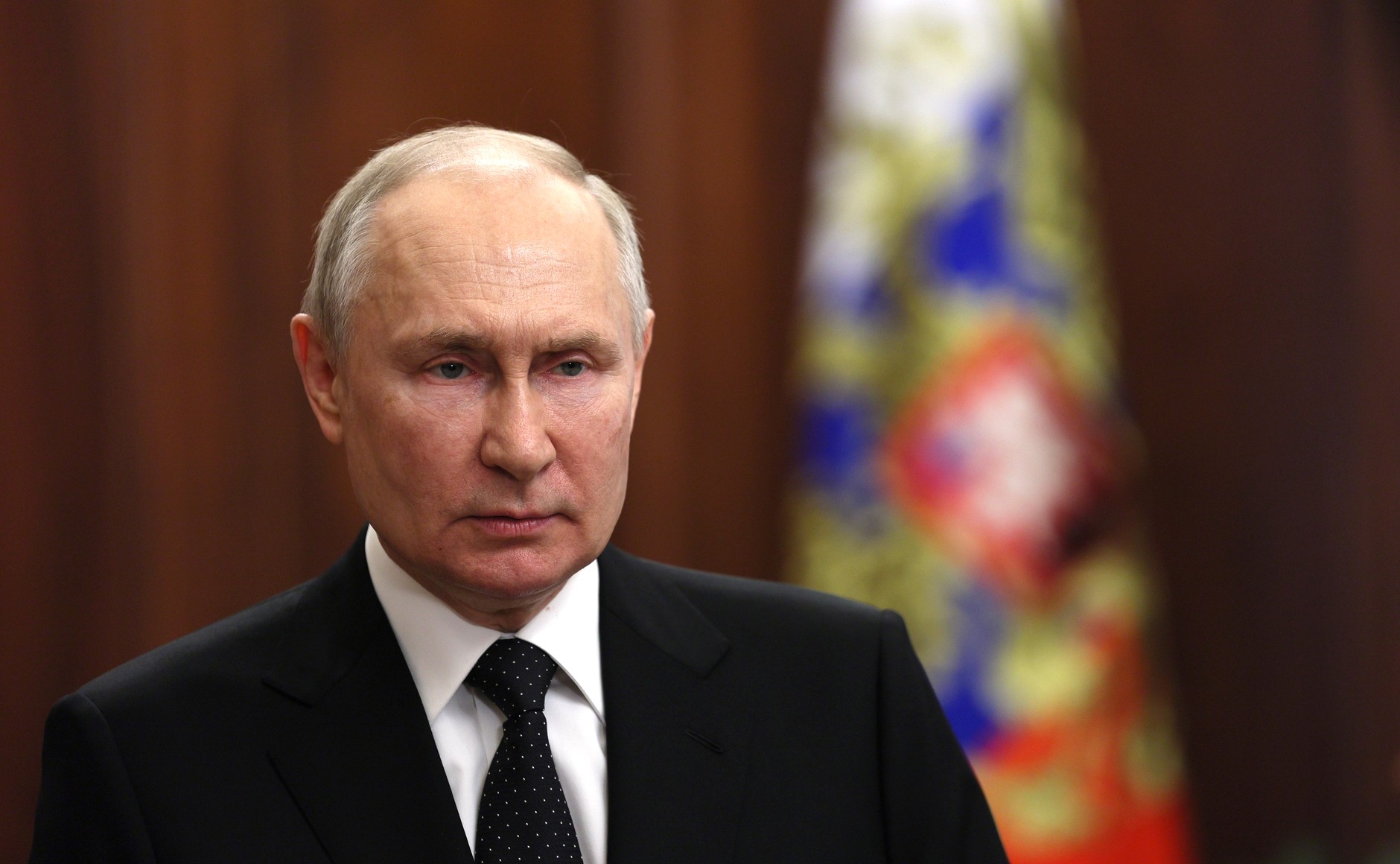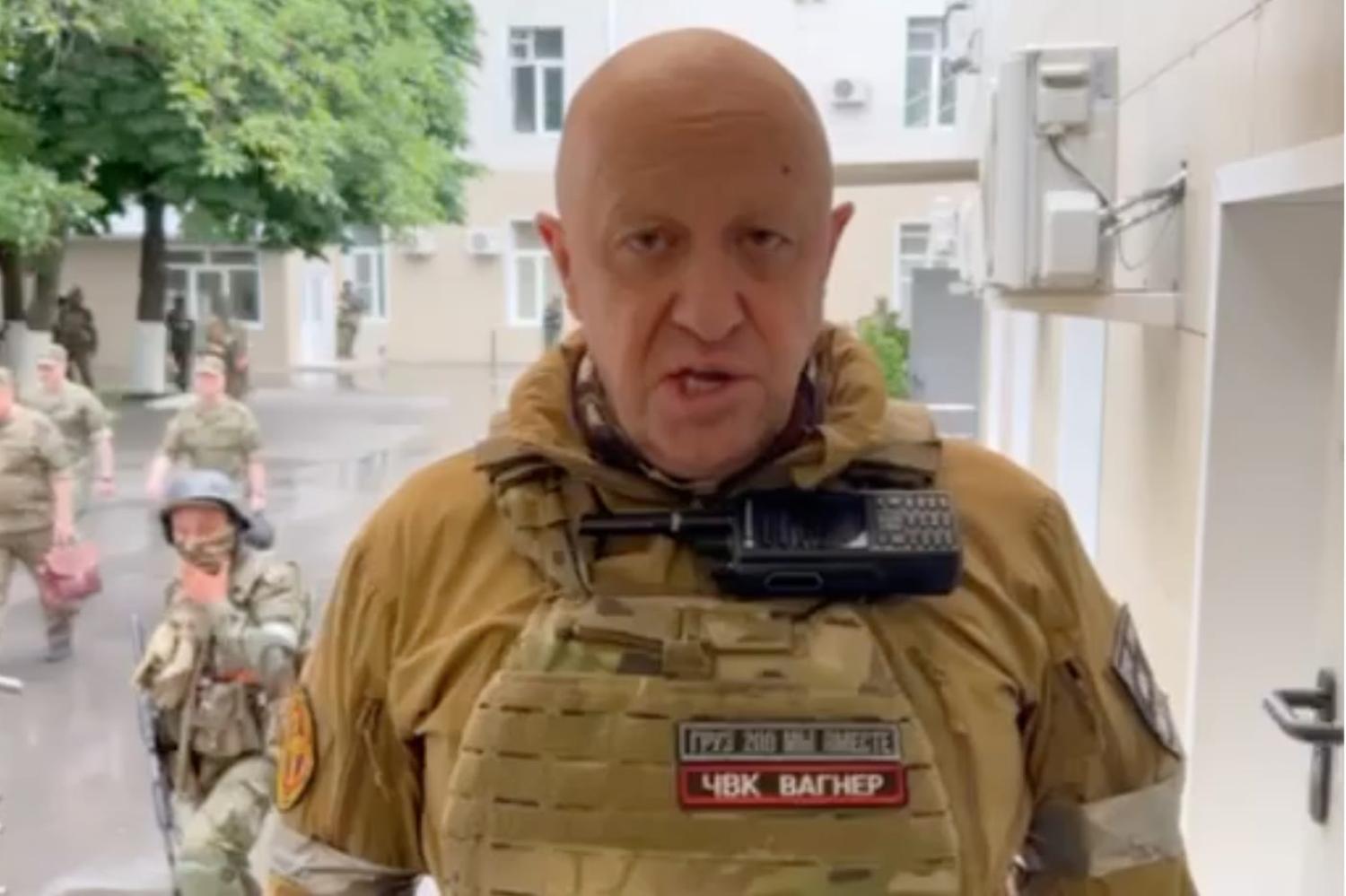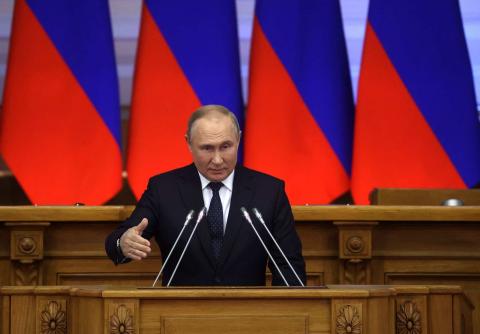How quickly things can change in authoritarian societies.
The internecine spat between Russia’s armed forces and the Wagner Group, led by the bombastic Yevgenyi Prigozhin, has now spilled over into an armed insurrection that suddenly seems to threaten the viability of the Russian state. While not a civil war, reports of Wagner forces shooting down Russian helicopters certainly tips the affair into an armed insurrection. So does the audacious seizure by Prigozhin’s forces of the Southern Military District headquarters in Rostov-on-Don, and the subsequent push by Wagner convoys into Voronezh, which neighbours Moscow.
Let’s not romanticise Wagner, though. Prigozhin is a thug. His fighters have been responsible for hideous crimes in Africa, and he has delighted in the execution of traitors with sledgehammers. He has few friends in the Kremlin, and has instead curried favour with middle-ranking officers in the Russian armed forces. He’s tried to deflect the blame for failure away from Wagner, and loudly criticised the management of the campaign against Ukraine by the Defence Minister Sergei Shoigu, and Russia’s Chief of the General Staff, Valery Gerasimov. For a long time Prigozhin refused to criticise Putin directly, with the exception of a recent reference to an “old grandpa” who believed the war was going well.
Prigozhin must have been aware that he has been used by Putin, mainly to browbeat Russia’s military leadership, and that his usefulness was coming to an end. His antics are his last roll of the dice: a fact made clear when it became apparent that the Russian armed forces had been given the go-ahead to deal with the Wagner issue conclusively. That resulted in Prigozhin’s fighters being attacked by their own countrymen and prompted him to drive his forces into Russia itself.

That the Kremlin was taking the threat seriously was obvious. TV news anchors were rolled out of bed at 2am for an “entirely normal” emergency broadcast to announce everything was fine, and that Prigozhin’s claims were incorrect. General Sergei Surovikin, previously thought of as sympathetic to Wagner, was trotted out for a video address begging Prigozhin to come to heel. And armed Rosgvardia troops swiftly appeared on the streets of Moscow, sealing off access to the Kremlin.
But it was instructive that few among the Russian elite came out to criticise Prigozhin until after Vladimir Putin’s (typically delayed) address on Saturday morning, Moscow time. The Russian President may not have mentioned Prigozhin by name, but his target was clear: Putin referred to the Russian civil war and vowed to crush those with “high ambition” whose adventurism had led them to high treason.
Once Putin’s broadcast finished, some of the usual suspects among Russia’s nationalists lined up to dutifully denounce the heretic. The list included Dmitry Rogozin, the disgraced former head of Roscosmos; the right-wing parliamentarian Konstantin Zatulin; and Leonid Slutsky, the chief of the (misnamed) Liberal Democratic Party of Russia. Worryingly for Prigozhin, the list also included his putative ally, the Chechen warlord Ramzan Kadyrov, who pledged allegiance to Putin and vowed to help put down the Wagner revolt.

Whether Prigozhin’s audacious insurrection succeeds, or whether it is (more likely) crushed, Prigozhin has already caused significant harm to the elite structures of the Russian Federation. For one thing, Russian media will struggle to explain how a man they venerated as a hero could denounce the war against Ukraine as a lie. For another, the comment on Wagner’s Telegram affiliate that the Kremlin had chosen wrongly, and soon Russia would “have a new President” was the most direct challenge to Vladimir Putin’s authority throughout his long time at the helm of Russian politics.
If Prigozhin fails, we should expect significant purges of the armed forces and Russia’s other security agencies, which will rob them of much-needed expertise in prosecuting the war against Ukraine, not to mention crippling morale even further. It will also mean the disbanding of Wagner, paradoxically one of the more effective combat organisations available to Russia.
Conversely, while success for Prigozhin is difficult to judge (A free hand in his activities? Capturing and removing Sergei Shoigu and Valeriy Gerasimov? Unseating Putin himself?), it will throw the Russian Federation into the biggest domestic turmoil it has faced since at least 1993, and possibly dating back to the end of the USSR. It is therefore far from beyond the realms of possibility that Prigozhin’s role in this Wagnerian drama is to light the touchstone of a much broader and deeper fracture of the Russian state. If that occurs, its seismic effects will be felt worldwide.

